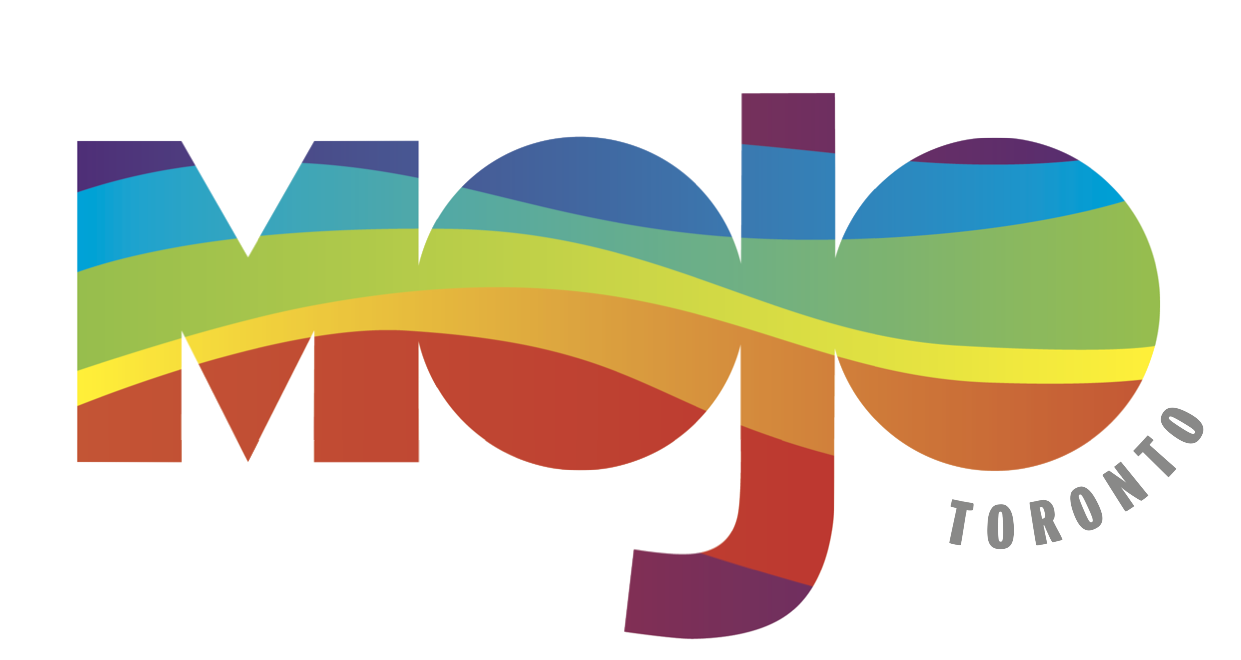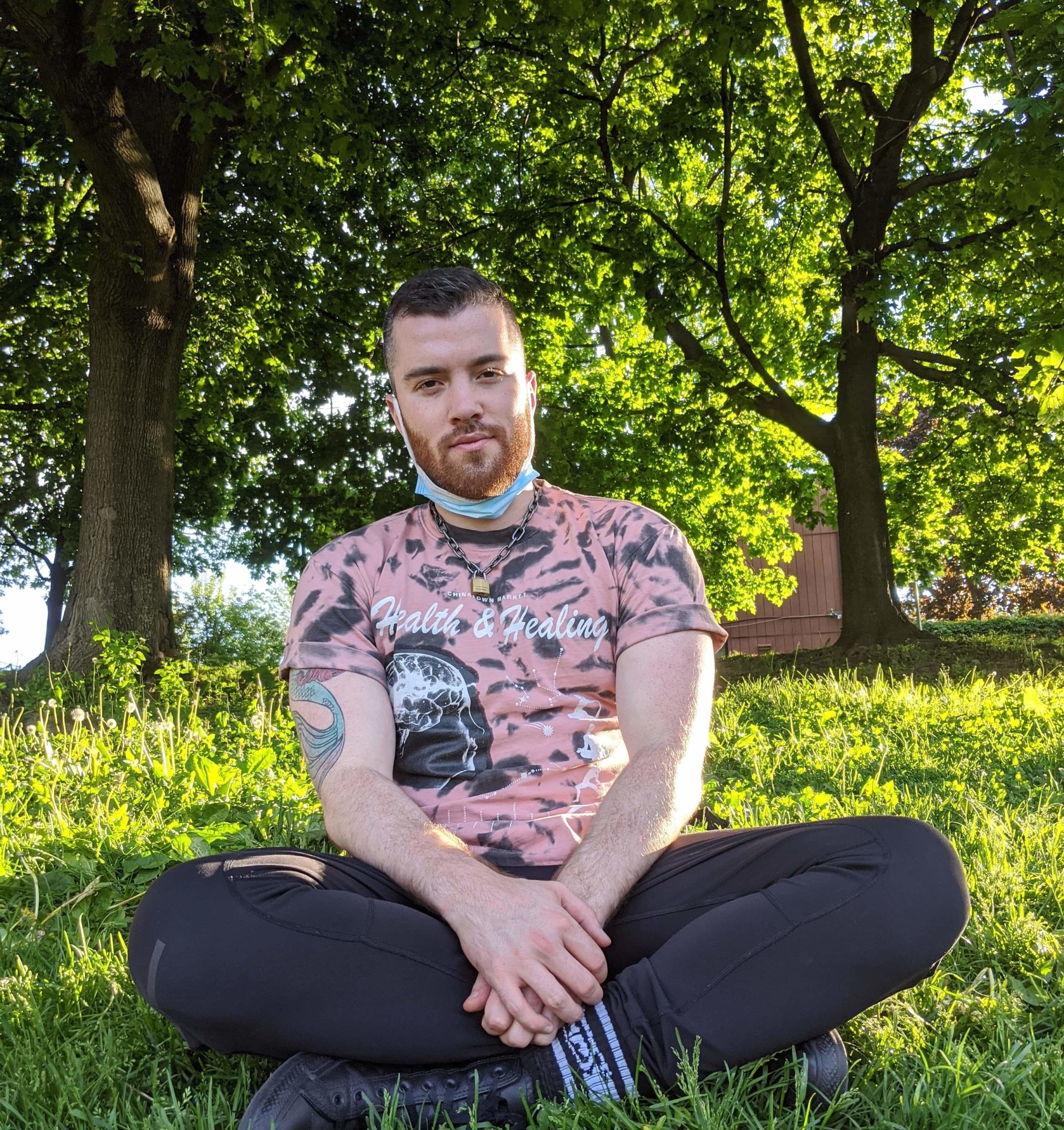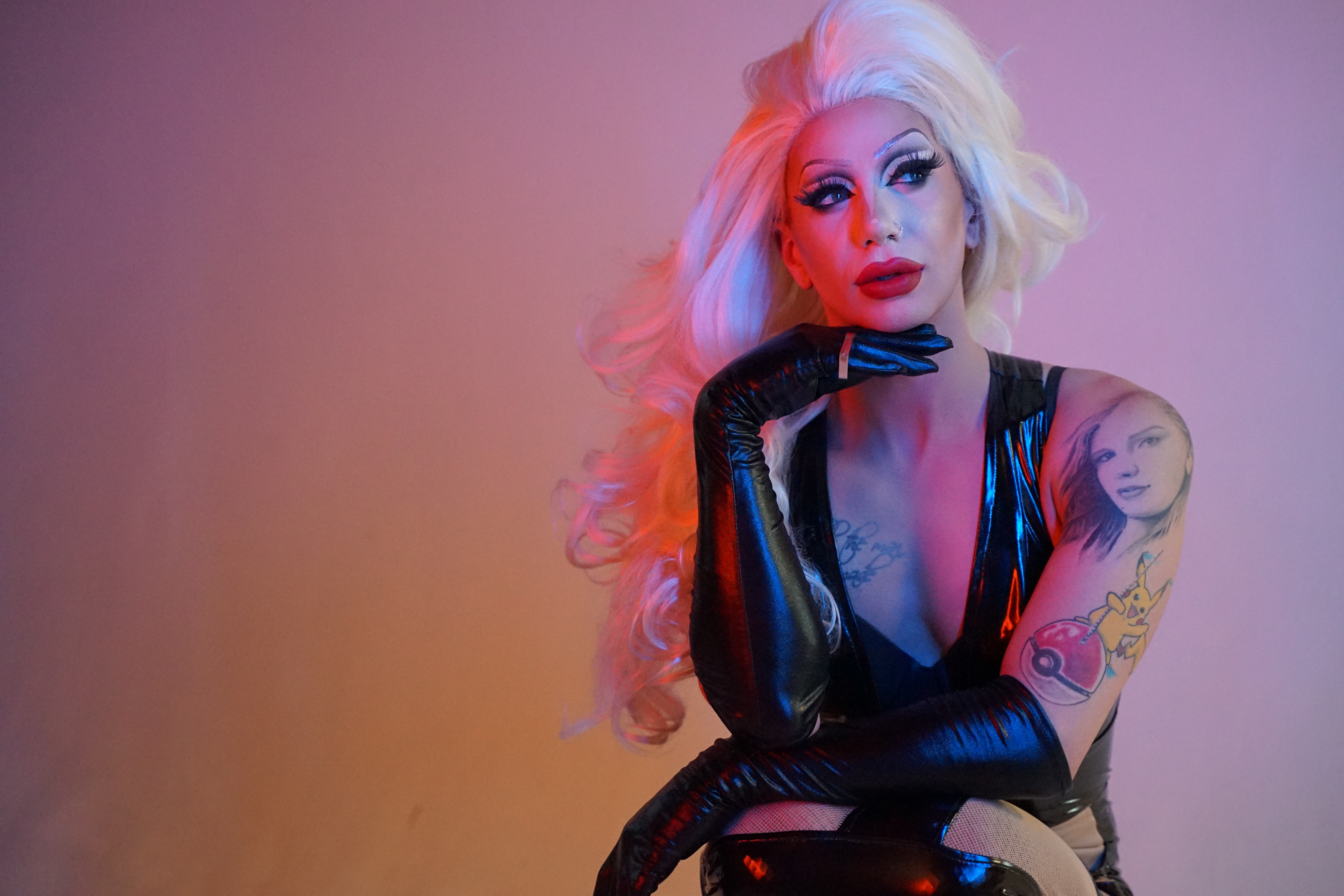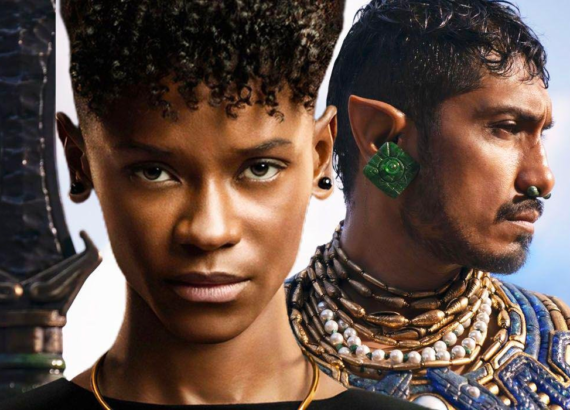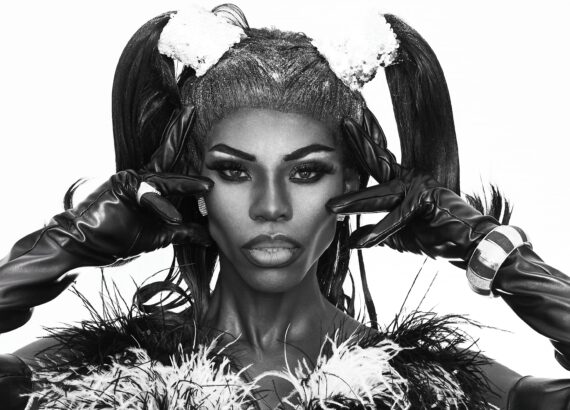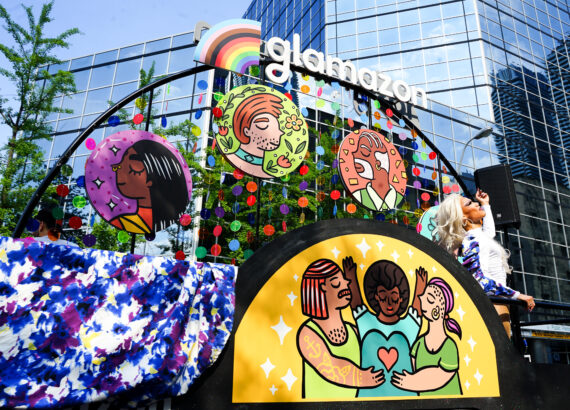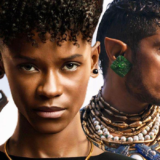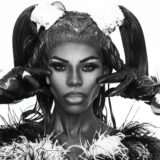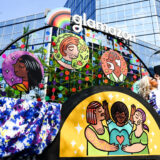Halal Bae: Queen of Outsiders
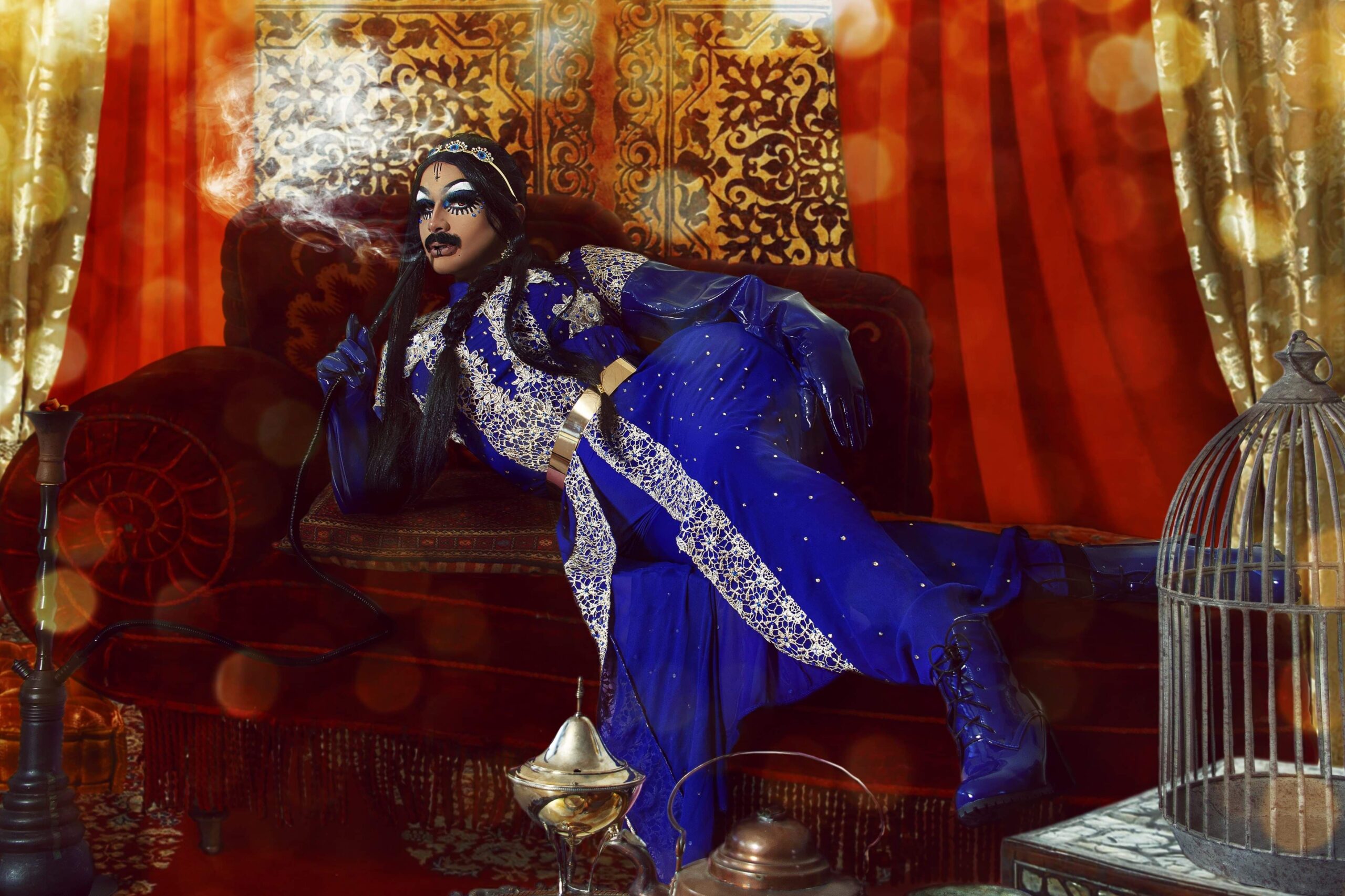
Halal Bae doesn’t fit in. They don’t fit the gender binary, they didn’t fit in growing up in Kuwait and they don’t fit into Western culture or the alternative drag scene. Faced with this predicament, the gender performer non-professionally known as Sherif Taalab has turned their aversion to boxes into a statement that brings fellow outsiders together to share their experiences and feel validated.
Growing up Egyptian in Kuwait and attending an American school, Bae (who uses she/her pronouns in drag and they/them pronouns out of drag) felt culturally conflicted. “I was getting a more Westernized idea of what it means to be a person and what it means to embrace yourself, but then I’m living in a culture where I can’t really do any of that,” she says. “I really started to resent my own culture.”
Bae came to Canada at 18, settling in Montréal where she found both new freedom and challenges. “That was the first time that I got to experience what it means to be a free, queer person. What it means to have open and progressive views and not have them shut down, but as I started to integrate and become part of Western culture I started to realize all the cracks that were also present here in terms of biases towards people who look like me and believe in what I believe,” she says. “Obviously the racism and the oppression that comes with Western, colonial culture.”
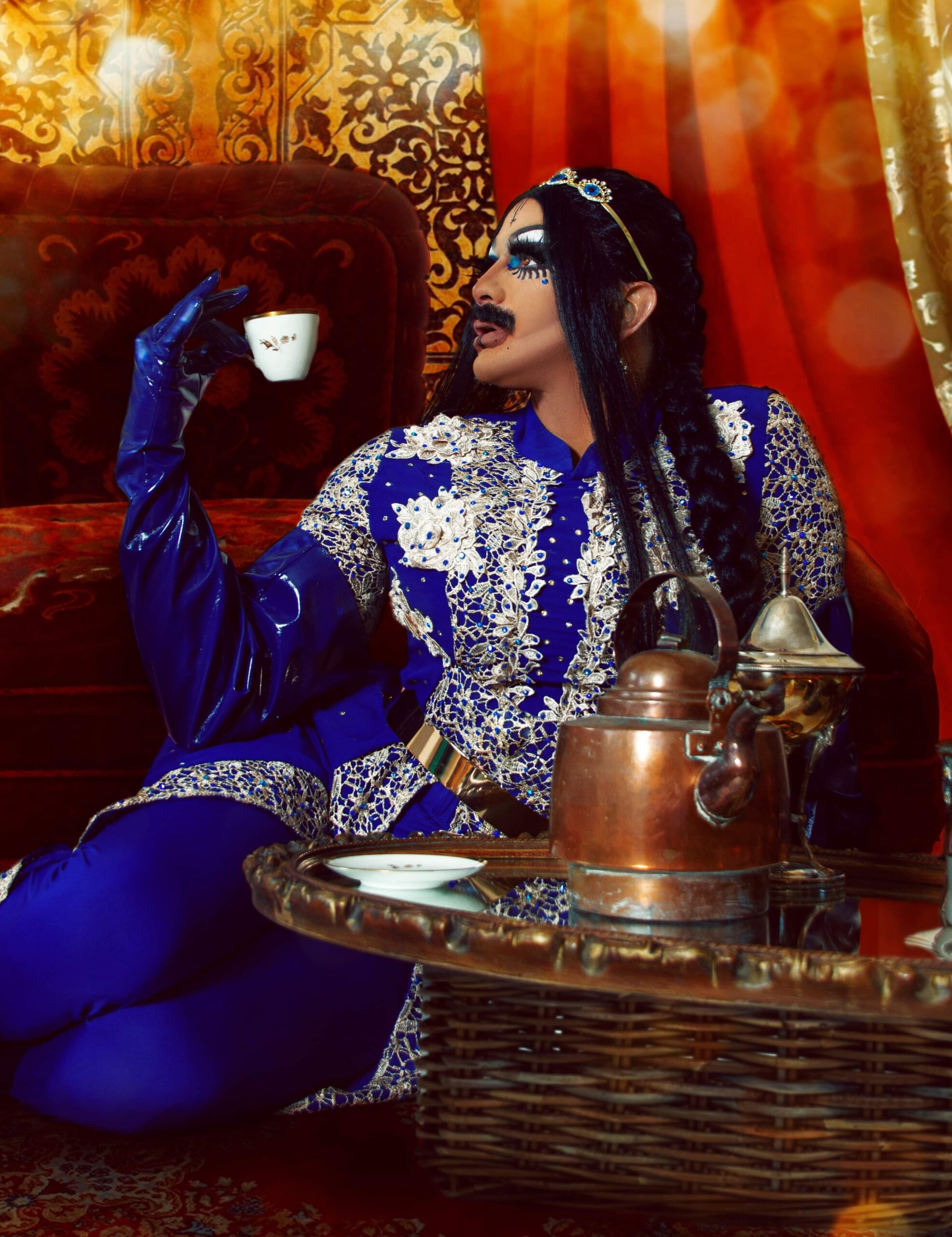
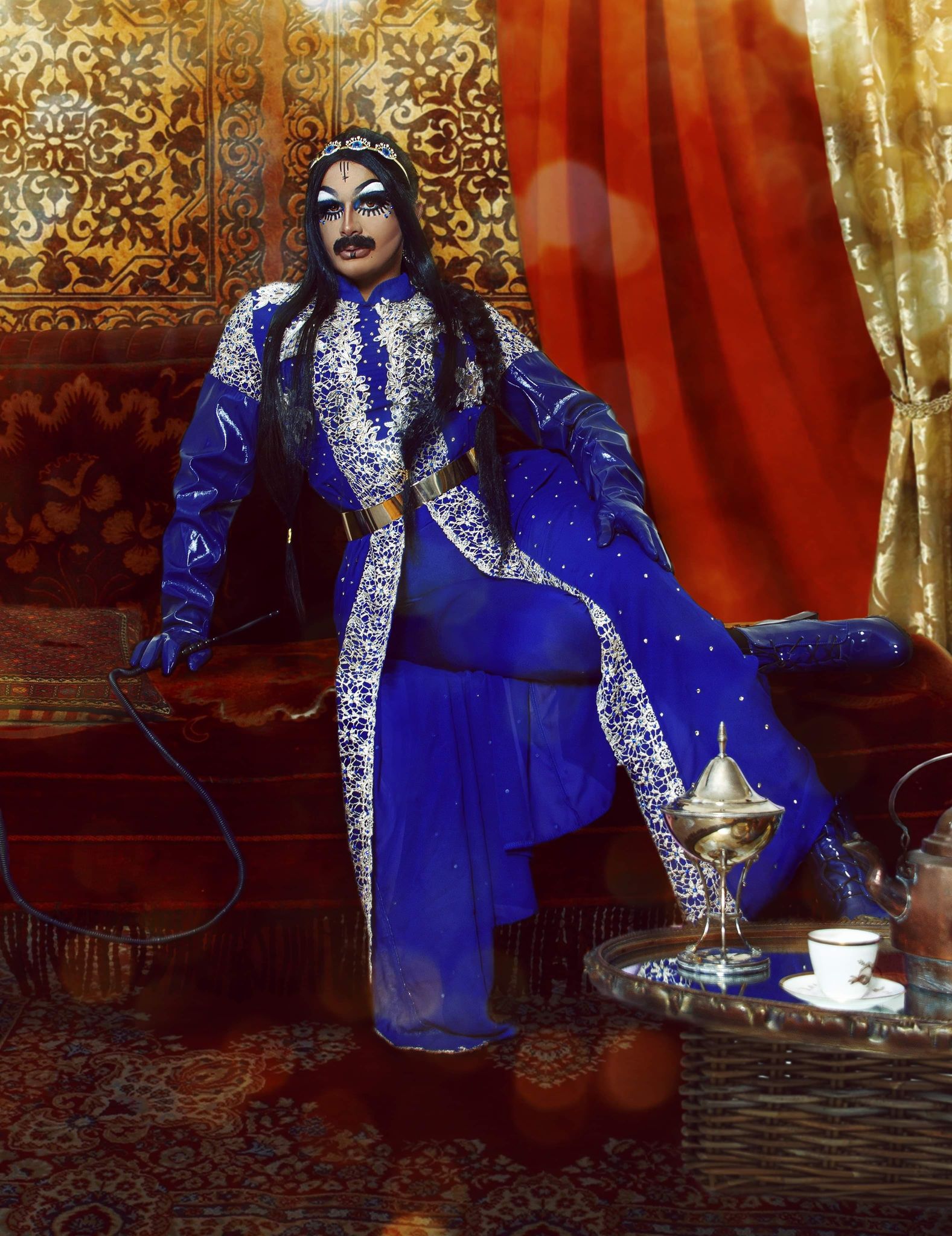
Photos by Quintin Cruickshanks
“I couldn’t win. Either I was too queer and too outspoken and progressive to be Muslim, Arab or North African and on the other end of the spectrum I was also too racialized or too Muslim to be accepted as a fully queer, Westernized individual and so I think Halal came as that clash of cultures where I was like, ‘You know what? I wanna create a character that attributes its history to the past that I have been given and to the culture that I consider to be my own, but carried the ideals of the place I chose to call home.’ ”
Halal Bae’s performance persona falls more into the realm of gender performer than a traditional drag queen, where a man dresses up as a woman, principally because they don’t identify with the male-female gender binary as a person or as a performer. “I’m a genderfluid person. I wake up every day and I feel one way or another. I wanted my drag to represent that in-between, effervescent creature. It doesn’t matter if I have crazy boobs and huge hips but then I’m hairy everywhere,” she says. “I can feel sexy as this cinched, bodacious person while keeping these traditionally, socially accepted masculine traits.”
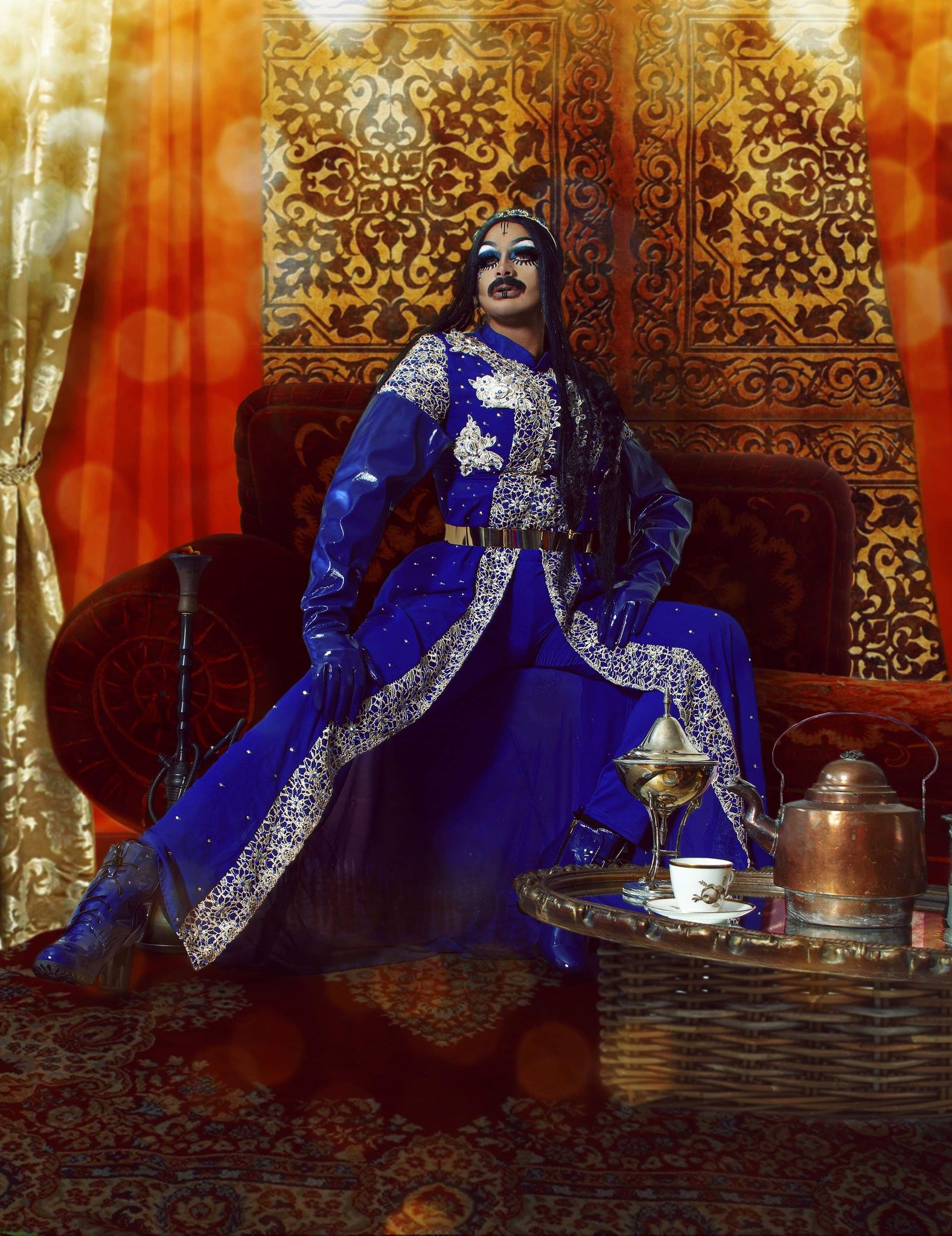
Photo by Quintin Cruickshanks
Bae has attracted an audience not just of regular admirers of great drag, but of folks with similar life experiences. She has also curated shows like Living in Colour at the recently shuttered Beaver Café, where she took a specific approach to booking other performers. “What’s important to me, first and foremost is to represent BIPOC voices,” she says. “Second is people who I don’t think have the platform that a lot of queens do. For me, it’s not about booking a show where it’s the most famous queens. For me, it’s more about the kings, the different gender performers, the people we don’t really get to see on television. For the past decade, Rupaul’s Drag Race has presented a very finite vision of what drag is and especially who can do drag.”
Bae says she saw the need for shows specifically for BIPOC performers of diverse genders after observation of the alternative drag scenes she loved. “I love these shows and I love the people that are producing these shows but I’m not really seeing diversity here. Where are all the POC weirdos?” she says. “There’s so many of these people who I knew of either through word-of-mouth or online but I didn’t really get to see them on stage and I thought it was really odd. Where are they and why aren’t they being booked?” She says the alternative drag scene, primarily in Toronto’s west end had more room for alternative performance styles but was still white-dominated, “as opposed to the village where you have a good array of POC queens but the style of drag is limited.”
Since the COVID-19 pandemic started, Bae has won the title of Best Local Drag Performer in NOW Magazine’s Reader’s Choice Awards but has found keeping up with digital drag frustrating. “You’re not at a bar, you don’t have the comradery, you don’t have the energy of the room when you’re just dancing to a camera and there’s no one there for you to interact with,” she says. “For many drag performers right now it’s more about surviving. A lot of us aren’t making the money that we used to make so you can’t really spend on the costuming, you really can’t spend on the makeup or the concepts so for me, it’s been mostly about trying to create makeup looks, trying to put myself out there like, ‘I’m still here!’ ” Bae has taken to releasing music videos, a medium she finds more engaging and creatively fulfilling.
Until audiences can come together safely for live entertainment, Bae will continue spreading her message however possible; a message that starts with her name. “In Arabic culture and Muslim culture halal means something that is acceptable, that is encouraged, as opposed to something that’s haram, which means that it’s unacceptable,” she says. “Being a drag queen, being queer, being a gender performer is considered very haram so I chose the name Halal to take this Arabic word that means to be accepted and make it into the character of something that is considered to be so taboo by my own culture to show other brown people, Muslim people, Arab folk, that you don’t need to choose either, or. You can have it all.”
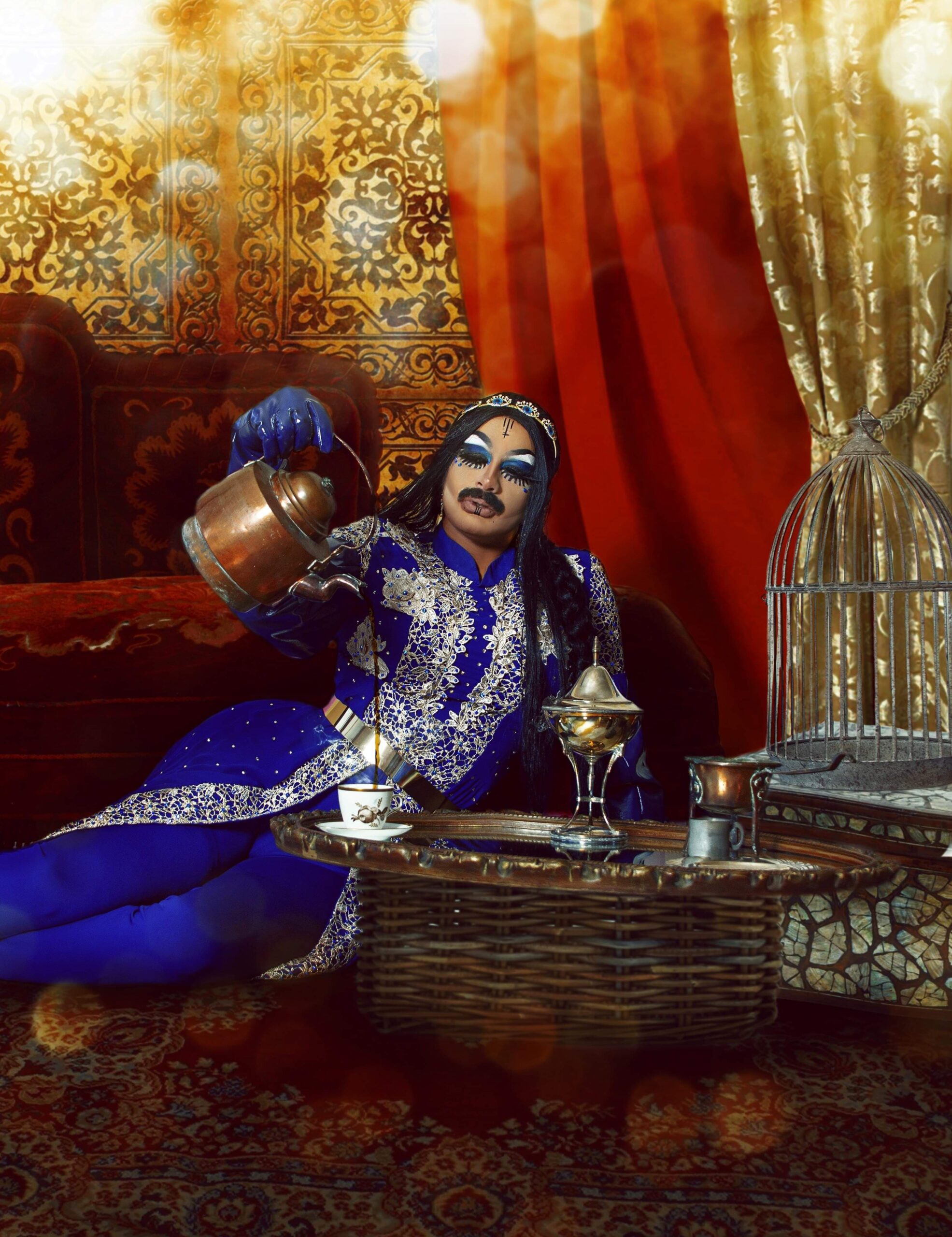
Photo by Quintin Cruickshanks
Creative Directors: Halal Bae & MoJo Toronto
Hair: Zachary James
Photos by Quintin Cruickshanks
